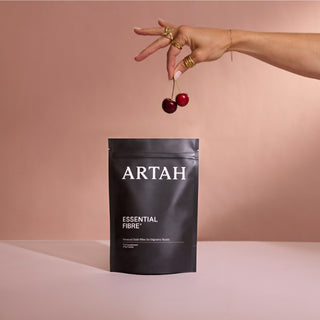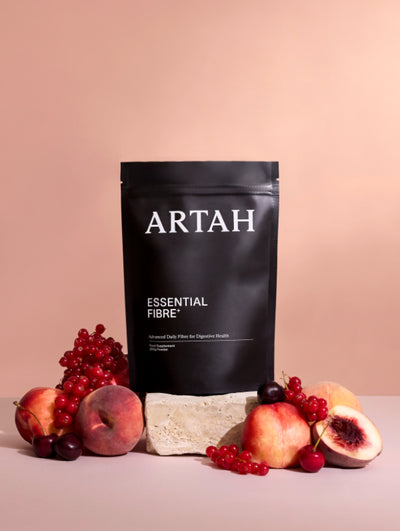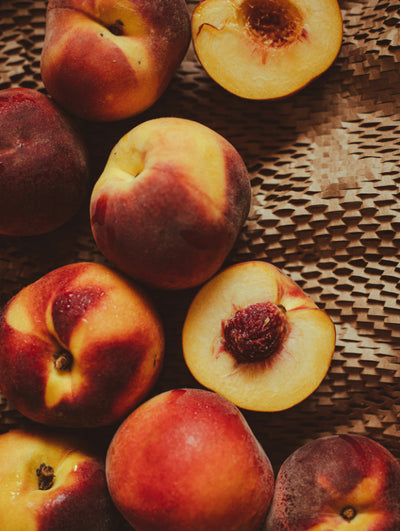With the fast pace of modern life, staying focused and productive is so important. When we struggle to focus, even the simplest of tasks can feel insurmountable and lead to procrastination, frustration and irritability, which in turn, fuels the cycle of distraction. Our cognitive health is affected by a variety of lifestyle factors, including how well we sleep, the food choices we make, our movement patterns, stress, and more, so getting to the root cause is the first step to sharpening the mind. Here are three things you need to know.
1. You may be on a blood sugar roller coaster.
Our blood sugar naturally fluctuates throughout the day, and when in balance, should gradually rise and fall. But, if we eat a meal that is high in sugar or simple carbohydrates, our blood sugar can rise too quickly., Whilst this will produce an immediate surge in energy, can also lead to a crash. Insulin is the hormone that regulates blood sugar and is triggered in response to food. This is important, because it allows sugar to enter the body’s cells to be used as energy or if in excess, directs the sugar to be stored as fat. When our blood sugar spikes, we secrete more insulin to get the sugar out of our blood quickly, and a quick drop in blood sugar can bring on intense hunger, sugar cravings, shakiness, lack of focus and irritability. This also prevents us from being able to efficiently use the glucose as fuel and puts us into fat storage mode, which is why we can often feel hungry despite having eaten recently. Everyone experiences low blood sugar differently, so even if sudden hunger isn’t a symptom, erratic blood sugar may be at play. What we put in our mouths first thing sets the tone for how our blood sugar responds for the rest of the day, and also influences how stable our energy supply will be.
WHAT TO DO:
3 things you should include with every meal to keep your blood sugar balanced are protein, fat and fibre, preferably from vegetables. In combination, these macronutrients help to buffer the absorption of sugar and promote fullness by triggering the appetite suppression hormone, leptin.
- Protein we love: chicken, turkey, lamb, beef, wild-caught salmon, wild-caught cod, beans, legumes, tofu, tempeh
- Fat's we love: avocado, olive oil, avocado oil, nuts, seeds
- Fibre we love: pak choi, broccoli, peppers, tomatoes, celery, cauliflower, green leaves – lettuce, rocket, watercress, cucumber, aubergine, courgette, radish
Try these recipes to balance your blood sugar
WHAT TO TRY:
Food should always be our first port of call to balance blood sugar, but supplemental support can be a great adjunct. Chromium lays a key role in supporting healthy glucose metabolism, and it’s been shown to help cravings and regulate food intake. (4) Consider Metabolic Fix which combines Chromium with Berberine, Cinnamon and other powerful phytonutrients and botanicals that help support energy and cravings.
2. You may need to chill.
Stress is prevalent in all our lives whether it be acute or chronic. A study in 2020 (1) showed how elevated stress can decline our cognitive ability; when in states of prolonged stress, our nervous system switches to ‘fight or flight’ mode and our amygdala, the part of our brain that helps process emotions like fear and aggression, goes into survival mode When this happens, it leaves other parts of our brain deprived of energy to store memories and perform higher-order tasks. Stress is usually paired with a busy and overstimulated mind, and this simple capacity issue can create overwhelm - making it challenging to focus on the task at hand.
WHAT TO DO:
Prioritise foods with B Vitamins to support your stress resilience – like good quality poultry and meat, eggs, leafy greens, legumes; black beans, pinto beans, lentils, and edamame beans. Take a pause or aim to reduce stimulants like coffee, alcohol and sugar – which can exacerbate stress both from nutrient depletion, sleep quality, and hormone disruption.
Lifestyle practices, like breath work, are key to stress management The simple practice of box breathing can counteract the stress response and help regulate our nervous system, Method as follows;
- Breathe in for 4 seconds, hold for seconds and breathe out for 4 seconds – repeat this 3x through. The more we build on this practice, the more potent it becomes.
WHAT TO TRY:
Ashwagandha is an extensively studied Ayurvedic herbal adaptogen. Studies have shown that Ashwagandha can help alleviate feelings of stress and anxiousness after 12 weeks of use. (3)
Enhanced Nootropics is loaded with the bioactive forms of the essential B Vitamins for cognitive and psychological function. This formula also contains the stress hero Ashwagandha, alongside 5 HTP for a calming and uplifting effect.
3. You may need to support your mitochondria.
Over time, food choices, nutrient deficiencies, lack of sleep, lack of hydration and prolonged stress can impair how efficiently our cells produce energy.
To understand energy production, we need to understand the role of a tiny part of our cells called mitochondria. Mitochondria are known as the “powerhouse" of our cells. They're present in nearly every cell in the body and produce 90% of the energy that we need to function. Through several chemical reactions, mitochondria metabolise glucose into an energy molecule called ATP (adenosine triphosphate). This is used to fuel an abundance of cellular processes, and we cannot live without it. The brain is energetically demanding, using 20% of our body’s energy despite it only accounting for 2% of our bodyweight, which is why mitochondria insufficiency can alter our memory, ability to focus and emotional processing. (2)
WHAT TO DO:
Choose phytonutrient-rich food that feed the mitochondria. Load up on leafy greens and sulphur-rich vegetables, like cauliflower, broccoli, pak choi, watercress and cabbage, which also help your body produce glutathione, the "mother" of all antioxidants. Red, orange and yellow vegetables and fruit such as; tomatoes, carrots, peppers, squash, sweet potatoes, peaches, mangos, melons, citrus fruits, and berries.
WHAT TO TRY:
If the mitochondrial efficiency is the key to energy, then NAD+ is the key to mitochondrial efficiency. Enhanced NAD+ Complex, which provides NAD+ precursors NR and Vitamin B3, which reduces tiredness and fatigue, and supports energy production in the mitochondria. It also contains Saffron, a well-researched herb for emotional wellbeing. Studies have shown that Saffron supplementation improved subjective measures of mood and the ability to self-regulate in a stressful environment after 8 weeks of use. (5)

Disclaimer: The information presented in this article is for educational purposes only and is not intended to diagnose, prevent, or treat any medical or psychological conditions. The information is not intended as medical advice, nor should it replace the advice from a doctor or qualified healthcare professional. Please do not stop, adjust, or modify your dose of any prescribed medications without the direct supervision of your healthcare practitioner.
References:
1. Liu Q, Liu Y, Leng X, Han J, Xia F, Chen H. Impact of Chronic Stress on Attention Control: Evidence from Behavioral and Event-Related Potential Analyses. Neurosci Bull. 2020 Nov;36(11):1395-1410. doi: 10.1007/s12264-020-00549-9. Epub 2020 Sep 15. PMID: 32929635; PMCID: PMC7674527.
2. Geary DC. Mitochondrial Functioning and the Relations among Health, Cognition, and Aging: Where Cell Biology Meets Cognitive Science. Int J Mol Sci. 2021 Mar 30;22(7):3562. doi: 10.3390/ijms22073562. PMID: 33808109; PMCID: PMC8037956.
3. Adrian L. Lopresti, Stephen J. Smith. Ashwagandha (Withania somnifera) for the treatment and enhancement of mental and physical conditions: A systematic review of human trials.vJournal of Herbal Medicine. Volume 28, 2021,100434,ISSN 2210-8033.
4. National Institutes of Health Chromium Fact Sheet for Professionals: https://ods.od.nih.gov/factsheets/Chromium-HealthProfessional/#h6
5. Jackson PA, Forster J, Khan J, Pouchieu C, Dubreuil S, Gaudout D, Moras B, Pourtau L, Joffre F, Vaysse C, Bertrand K, Abrous H, Vauzour D, Brossaud J, Corcuff JB, Capuron L, Kennedy DO. Effects of Saffron Extract Supplementation on Mood, Well-Being, and Response to a Psychosocial Stressor in Healthy Adults: A Randomized, Double-Blind, Parallel Group, Clinical Trial. Front Nutr. 2021 Feb 1;7:606124. doi: 10.3389/fnut.2020.606124. PMID: 33598475; PMCID: PMC7882499.


















































